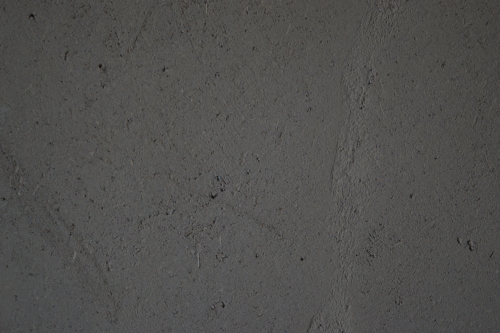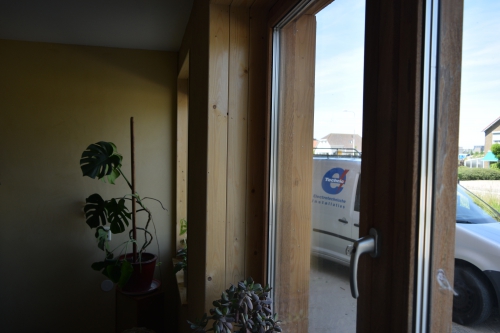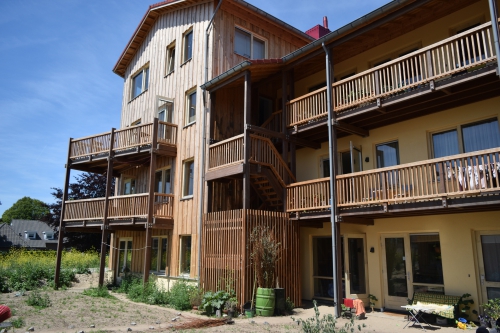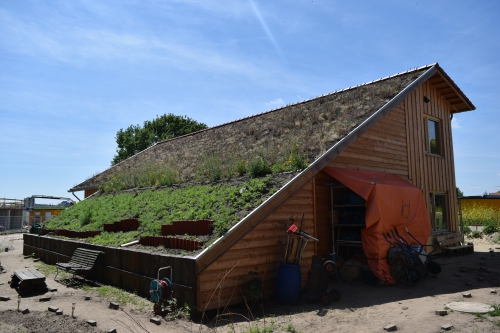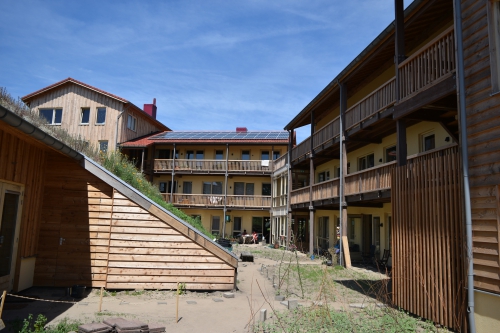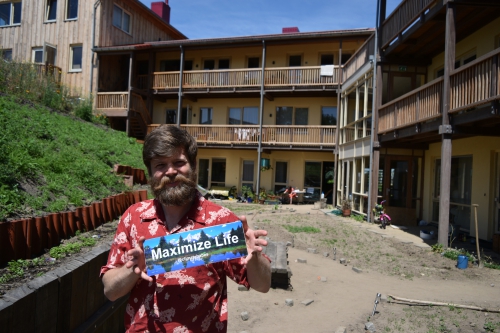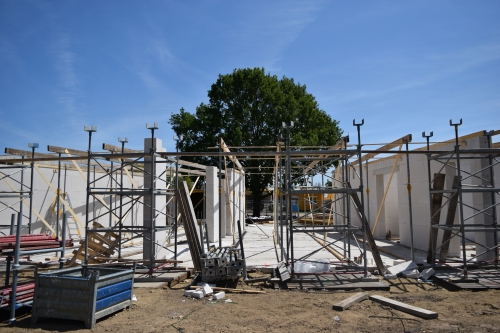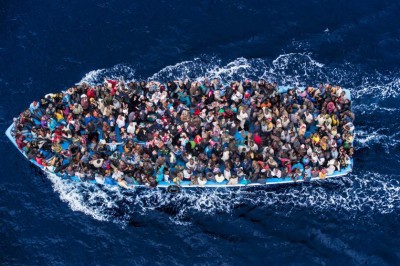We are back to the pre world war two mental state. Due to climate pressure, automation, fossil fuel scaricty some are once again talking about how people can remain usefull, and even openly if we should have as much people as we have right now. Yuval Noah Harari, who talks about human cooperation as the cause of its rise from the animal kingdom (a weak talk with several flaws), asks the question in his book “What do we need humans for, or what do we need so many humans for”. In his case the premise of his talk is to justify religion and apparently lead to regurgitation of the century old thoughts that inspired fascism.
There is a good reason to think of usefullness in humans. We come from long lines of farmers, hunters and traders, and not doing anything has always meant a quick exit from the population. Usefullness however can be defined in several ways, one can be usefull to ones self, to others, by keeping them healthy and fit, by providing them with what they want (which may be of no importance to their survival at all).
Making money is not necessarily usefull, but economic thought almost defines it as such
Today usefullness is almost exclusively defined by economic factors. This means that if you can make money doing something it becomes usefull. Our lives are organized in such a way that we can not easily produce our own food, we can not provide ourselves with shelter (land prices are adopted to involving builders to build a normal house). The flipside of this lack of freedom is that the government (which usually contains some socialist members) tries to control the economy so it offers opportunities to all. It doesn’t because it tends to offer opportunities to those that are easy to control, those that promote it’s ideal of consumption. Not everyone is born to be vrivolous enough to go for the full economic ideology.
Economics takes morality and puts trade in its place. It doesn’t want you to be attached to anything of potential value to someone else.
A well functioning economy will always repair flaws in its own system and continuously does. Economists constantly debate to find how out how to present the core principles so that people will cooperate with it. In some countries like the US this has resulted in even the election cycle being economically driven (a total and complete success). Companies pay for propaganda that makes people support their chosen candidate. There are left oriented socialist companies that will support the left wing candidates, and right wing fossil fuel serving companies that will support the right wing candidates. Obviously the usefullness meme comes from the right, and there is a good reason.
On the left side we find people that try to reason with reality. They try to see what is there and wonder how it can help us survive and thrive. If there is solar energy the left is all for using it. If there are people in need the left will recognize there are ample resources to feed them and try to do so. The left does go wrong when it thinks that we can have universal basic income without riding ourselves of having to deal with the fossil fuel sector. A basic income implies that you take fossil fuels from people who work very hard to get it and have almost everyone to sell it to.
On the right we find people that reason with their ambitions. What they want is most important. They want above all to be strong and clean, not dragged down by trash and filth (easily disgusted people tend strongly to be on the right side of the political spectrum). To the people on the right reality is of no importance, what is important is that they get what they want. They usually exclude filth and poverty from their vision of the world so in extrema they don’t want poor or filthy people to exist. A slight variation of not wanting people to exist is to want them to be usefull. This is the minimal requirement for the right because if you are not usefull you don’t contribute to what anyone wants, and the people on the right don’t bother with people that don’t play a role in what they want.
Marylin Monroe plugging Shell (1:35) in Some like it Hot
The right side of politics may once have been predicated on a superior sense of neatness or ability and desire to achieve. Today it is predicated on protecting the fossil fuel industry and the banking system which is a derivative of it. Without fossil fuels there would be no banking system as we know it today. Credit would not be that easily generated. Since Nixon money is fossil fuel credit and this system only works if there is enough fossil fuel to go around. US superiority has come mostly from it’s control over fossil fuels through their dollar printing press and Wallstreet banks. The fossil fuel sector had the biggest cookie to lure the right in and make them be their posterchildren. Neat, clean fossil fuels in neat clean cars in neat clean houses using neat clean plastic etc. etc.
A fossil fuel driven society is a zero sum game
The most important aspect of modern right wing’s subservience to fossil fuel interest is that to them running a society has to be a zero sum game. There is one common resource : fossil fuels, and its supply is limted, so through the management of credit you can manage where it goes. If someone gets it another person will not. The challenge is how to distribute fossil fuels so that most of the right wing servants will keep helping the fossil industry do what it does while still realizing their personal ambitions. It is a challenge to manage the mutual dependence between banks, neat people and oil with a crumbling ecosystem and climate in the background.
In order to manage that dependency the neat people need effective tools to deal with demand for oil rising beyond the ability to supply it. That would definitely lead people to go for renewables and undermine the political power of the right as well as the fossil fuel sector. So in order to reduce demand an ideology has to be created that justifies rejecting people (and sending them to an early grave through deprivation), which has been happening by undermining education, by cutting social services and by allowing automation (although this is a whole other related topic). Now we are reaquainted with the property ‘usefullness’ of a person.
If a person can not find a job he is not usefull?
The first mistake most people will make is to start arguing why people are usefull or not, or how they can be usefull. The first thing to say is that this “how usefull are you?” is an invalid question. Usefull to whom? The answer is usually that a ‘useless person’ takes from the collective, he/she is a parasite. What that implies is that others that are working do not take from that same collective. That people that work are somehow a benefit to us. Most of the times they are not. A divorce lawyers’s work is no use to me, a bakers work in another country is no use to me. In fact, most other jobs are depleting resources that I could have enjoyed more easily if those jobs didn’t exist. This is the whole ‘competitive free market economy’, the reason why we work so hard. ‘Useless people’ that just eat and drink and hang out are exactly what we want!
How usefull is a shoe salesman in Karachi to you? But he has a job!!
If a job today is only viable if there is enough fossil fuel to do all kinds of things to make the job possible, than such a job is a cost of resources, and in 99% of cases people in other jobs do not have any benefit from it. Who does have benefit is the seller of the fossil fuels, who likes to enjoy the revenue in return to giving people lives they like, with some work during the day and relative luxury in their spare time. They would have that if they worked the land and owned their own home, but the fossil fuel economy inserted itself in every activity and brought it under control of the fossil fuel/banking system.
You are not usefull if you don’t create more resources than you consume
As a result most jobs are a burden on resources, and most working people are useless. Picking on the non working is just the most efficient thing to do because it 1. doesn’t affect cashflows 2. It reinforces the notion work is valuable 3. It scares people into their useless jobs. 4. It fits the rights preconception that poor people are filthy (especially when the right ‘useless’ people are shown, the ones with dirty dreadlocks and shabby clothes).
Usefullness can be a local social quality, not a general economic one
Renewables totally change the above dynamic. The first reason why is that solar panels/collectors and wind turbines generate resources, electricity or heat (or cooling) that can be used in many ways to support human lives. The group of people to represent local renewables can not be gathered from the elite of all neat people, because a local wind turbine or solar power plant doesn’t serve people on the other side of the country (even if the fossil fuel economy tries to make this the case). There is no problem with useless people if they are kept alive by systems that have no first owner or require hard work to make available. Renewables break the same sum game. They create a game in which the amount of people our planet can sustain increases by a factor of more than a thousand.
When the productivity or a region no longer depends on whether it is integrated with the fossil fuel distribution system the role of the people in it changes from being either a ‘deserving’ or ‘undeserving’ fossil fuel consumers. Everyone can have a role. The smartest people can still be doctors and the hand ones can maintain the energy infrastructure, but the less intelligent or agressive can simply be and exist off of mostly mechanized food production. Jobs like that of a farmer don’t have to be squeezed to death for the benefit of traders or intermediates, because there is no fossil fuel based economy on top that has many lazy neat people. Instead farmers hold the cards themselves as they are autonomous. This either leads to more people farming or to some kind of communal cooperation when in comes to food production.
Clearly the use of a human is up to him or herself. We are entering an era in which supporting large numbers of ‘useless’ people will become easier, but also in which giving people something to do to ‘justify their existence’ becomes easier. Now it is almost baked into the cake that for those outside or unwanted by the carbon-economic system there is no job that can redeem them (except escape and fight it). Anyone supporting both economics as usual and this notion of usefullness is thus building towards world war II style genocide.





